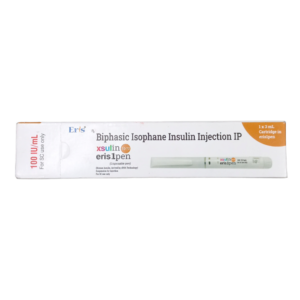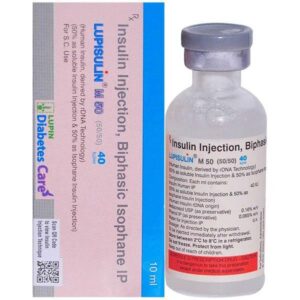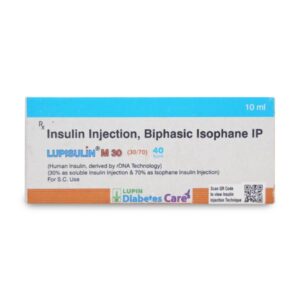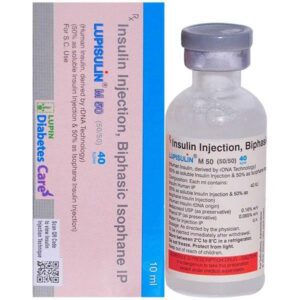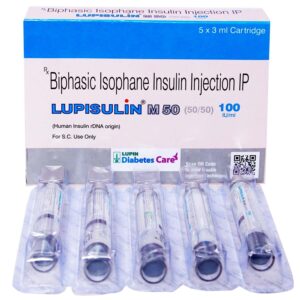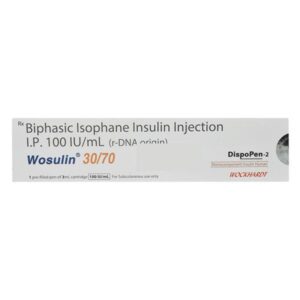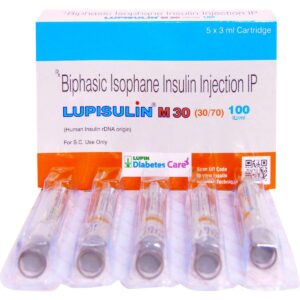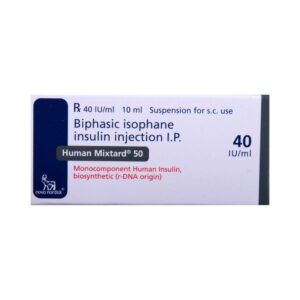BIPHASIC ISOPHANE INSULIN
BIPHASIC ISOPHANE INSULIN: Biphasic isophane insulin, also known as NPH insulin, is a type of insulin medication used to treat diabetes. It is a mixture of regular insulin and an intermediate-acting insulin called protamine. This combination allows for both short-term and long-term control of blood sugar levels.
The mechanism of action of biphasic isophane insulin involves lowering blood glucose levels by facilitating the uptake of glucose into cells, especially muscle and fat cells. Insulin promotes the storage of excess glucose as glycogen in the liver and muscles. It also inhibits the production and release of glucose from the liver, reducing the amount of glucose released into the bloodstream. Additionally, insulin facilitates the breakdown of fats and inhibits the breakdown of glycogen, further controlling blood sugar levels.
The dose of biphasic isophane insulin varies depending on the individual’s needs and may require adjustments over time. It is usually injected under the skin, and the frequency and timing of administration are determined by the healthcare provider based on the patient’s blood sugar monitoring and other factors such as meal patterns and physical activity.
Some common side effects of biphasic isophane insulin include hypoglycemia (low blood sugar), weight gain, injection site reactions (such as redness, swelling, or itching), and allergic reactions (rare). Hypoglycemia may cause symptoms such as shakiness, dizziness, confusion, sweating, and hunger. It is essential to monitor blood sugar levels regularly and seek medical attention if severe or persistent side effects occur.
It is important to note that the information provided here is a general overview, and the specific instructions and dosing should be discussed with a healthcare professional familiar with the individual’s medical history and needs.

